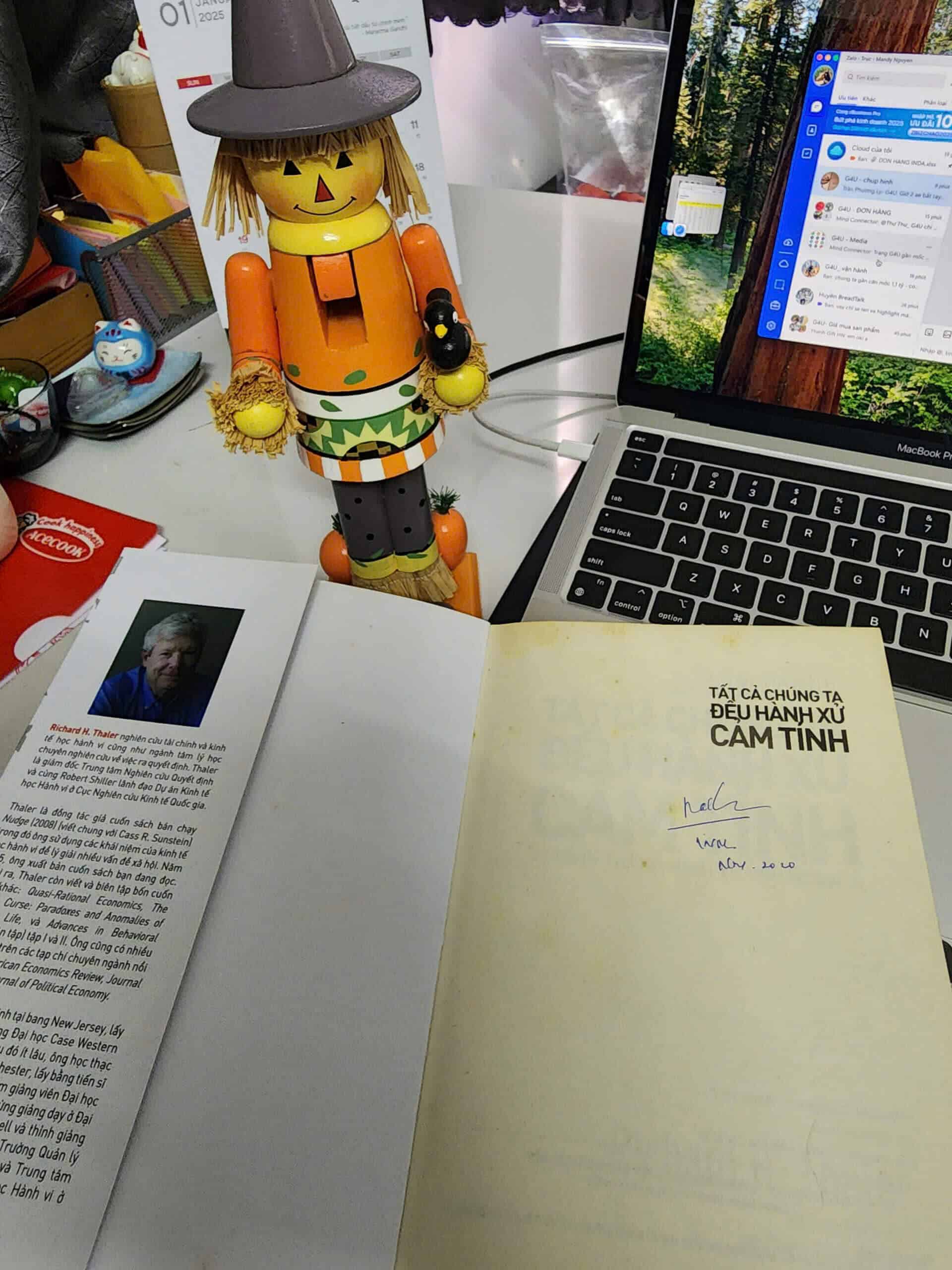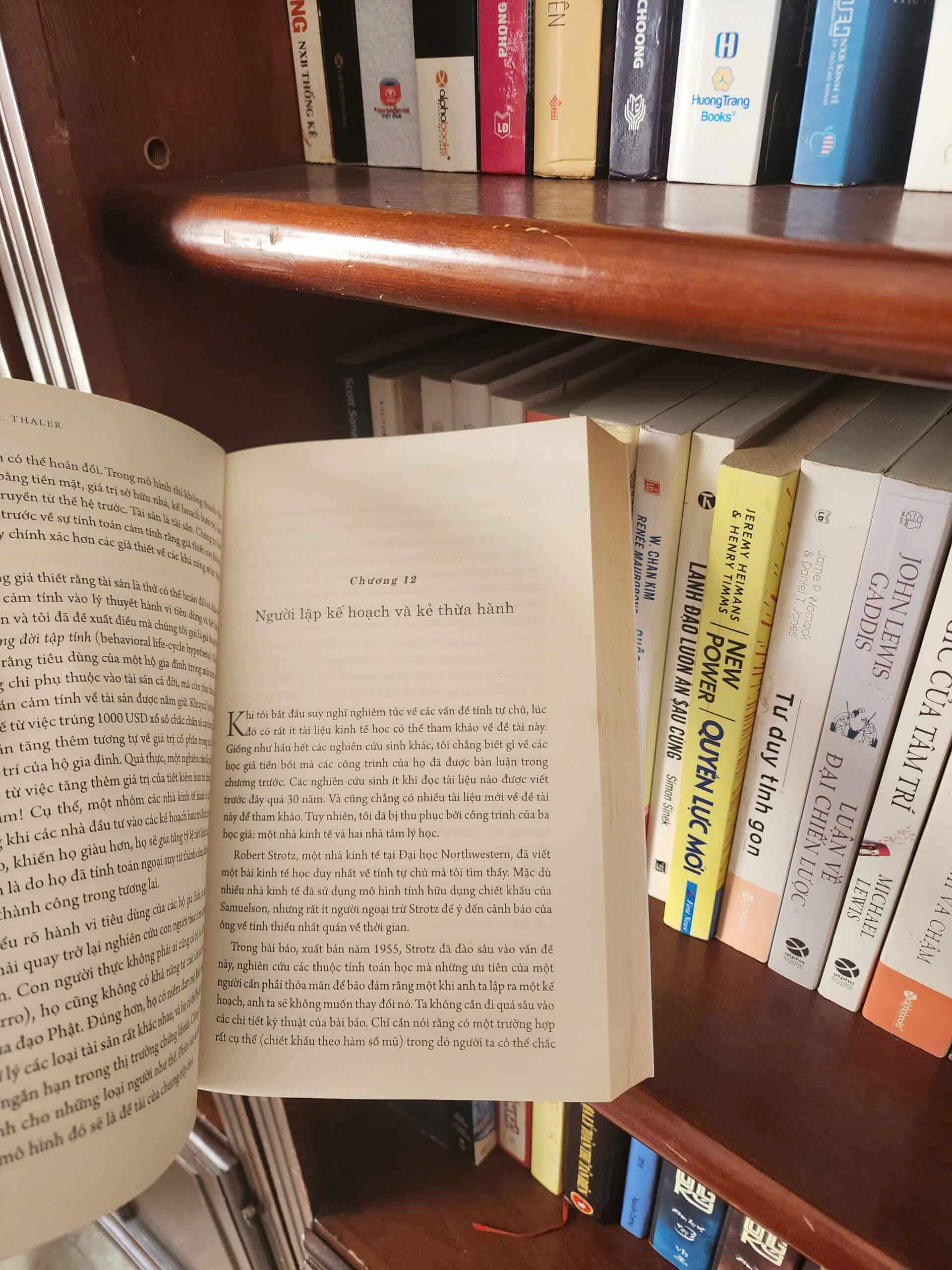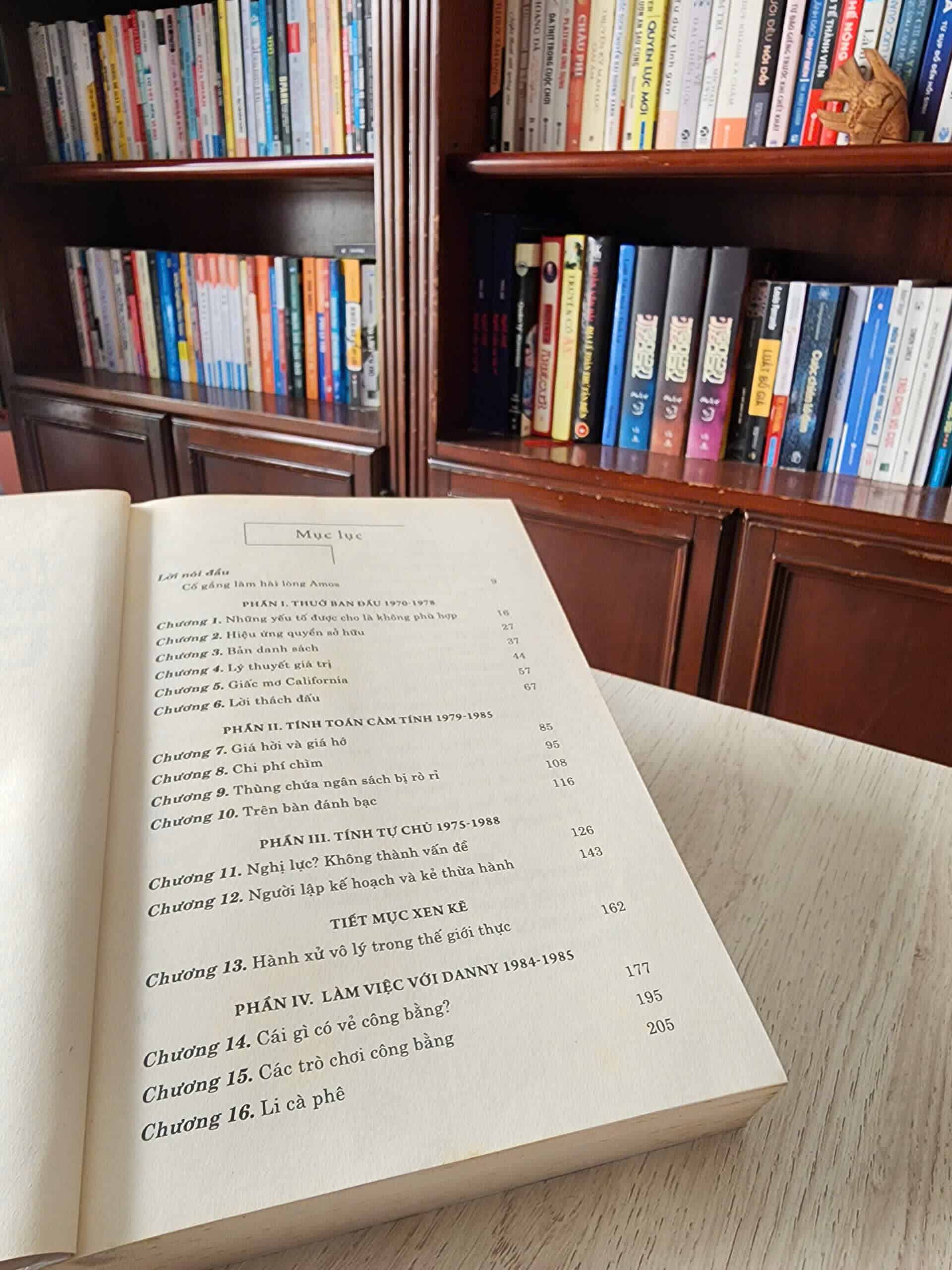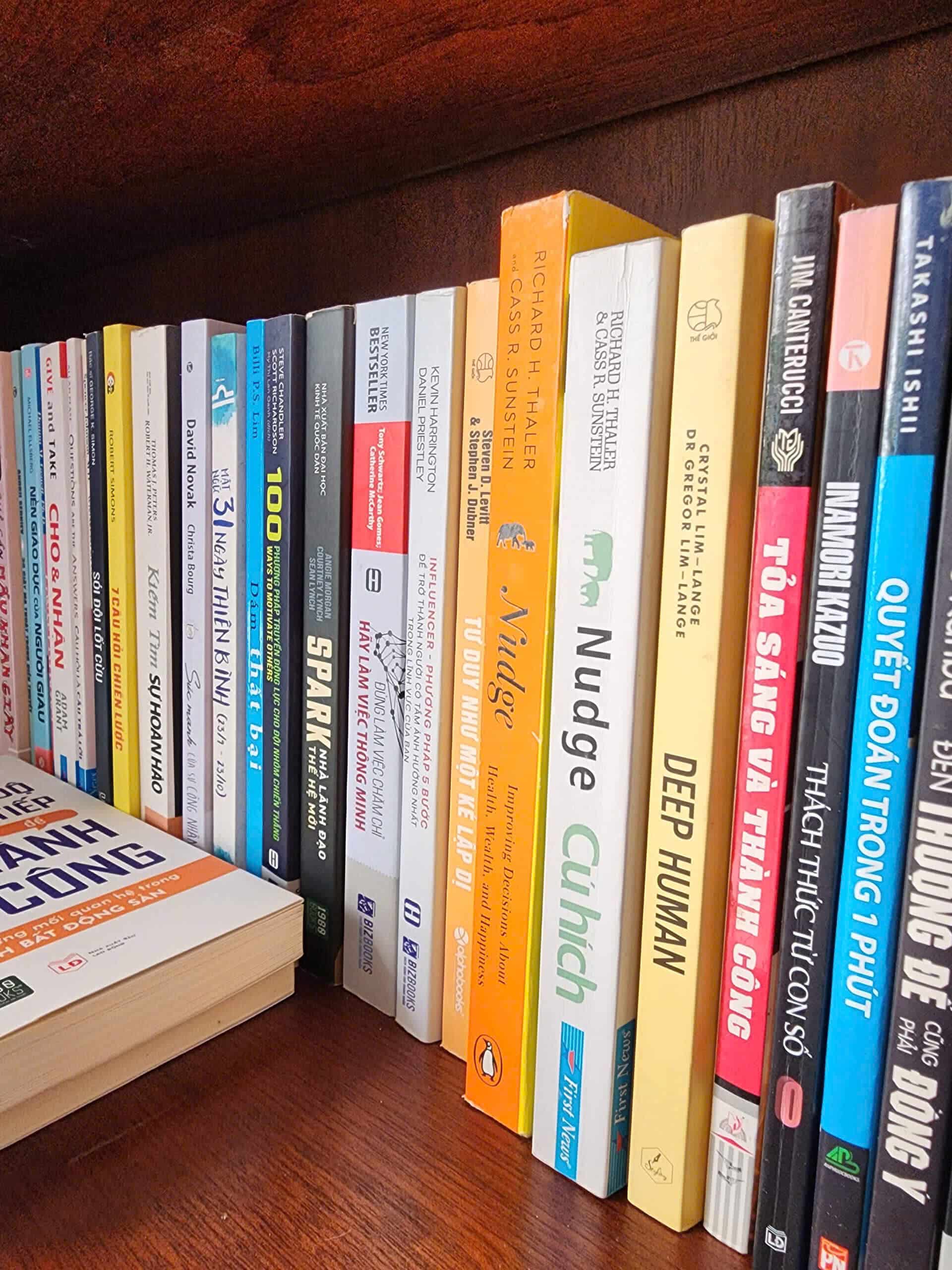“MISBEHAVING – the making of Behavioral Economics” Richard H. Thaler, The author won the 2017 Nobel Prize in Economic
Good book introduction corner
In the last days of the lunar year 2024, amidst the chaos of work, I suddenly realized that, for quite a while, I had not read a book that I liked so much that I picked it up and didn’t want to put it down. I also suddenly realized that I was being carried away by events… To the point where I suddenly burst out saying “ah, I’m also being emotional about everything

Giving myself a “carefree” morning, I went to the cafe and browsed the bookshelves. By chance, the book “WE ALL BEHAVIOR EMOTIONAL by Richard H. Thaler” touched my hand, with passages and notes. Remembering 2020 until now seems like yesterday, let me introduce to you.
Comments on “WE ALL BEHAVIOR EMOTIONAL” _ Richard H. Thaler
Read We all behave emotionally. There is no better guide to Behavioral Economics than this one (Robert J. Shiller, 2013 Nobel Prize-winning Economist)
Interesting… An excellent book that discusses the shortcomings of classical economic and financial theory (Ronald L.Moy CFA Institute)
A unique, slightly protesting historical story about Economics… Fascinating and useful (Jonathan A.Knee – the New York Times)
Extremely fascinating…full of interesting examples…it is time we replace Econs with humans (emotions) both in theory and in the practice of prediction (Carol Tavris – Wall Street Journal)
A great, easy-to-read book on Behavioral Economics (David Wessel, Pulitzer Prize-winning journalist, author of Red Ink and Ben Bernanke’s War on the Great Panic)
Thaler is a creative genius who not only gave birth to behavioral economics but is also an expert and extremely funny storyteller. All of those talents are revealed in this wonderful book (Daniel Kahneman, Nobel laureate in Economics, author of Thinking, Fast and Slow)

And there are many interesting comments from famous journalists and authors around the world about this book, should you spend 4 hours reading it?
Highlights of “WE ALL BEHAVIOR EMOTIONAL” _ Richard H. Thaler
The book tells us the story behind the most important knowledge in modern economics. “WE ALL BEHAVIOR EMOTIONAL” is a product that cleverly combines the latest research in psychology and economics.
Traditional economists assume that people behave rationally. But in his research, Richard Thaler has shown that cold, rational ‘human machines’ like the character Spock in the Star Trek series are no different from us emotional humans
We are all biased, act emotionally, and make decisions that go against the rational standards assumed by economists. People behave irrationally. But more importantly, our unreasonable behaviors create enormous consequences

Initially despised by economists, today behavioral economics, the study of human miscalculations and their impact on markets, has become a popular topic. An important science that helps us make better decisions in daily life as well as decisions in society
About RICHARD H. THALER
Richard H. Thaler was born in New Jersey and received his Bachelor’s degree from Case Western Reserve University in 1967. Shortly after, he studied for his Master’s and PhD at the University of Rochester, earning his PhD in 1974
Before becoming a Lecturer at the University of Chicago in 1995, Thaler taught at the University of Rochester, Cornell University and guest lectured at the University of British Columbia, Sloan School of Management (MIT), Russell Sage Foundation and Research Center. Senior in Behavioral Science at Stanford
He is the author who won the Nobel Prize in Economics in 2017 for his contributions in the field of Behavioral Economics.
Thaler is also the co-author of the bestselling book The Nudge (2008) written together with Cass R.Sunteinl in which he uses the concepts of Behavioral Economics to analyze many social problems.

In 2015, he published the book “WE ALL BEHAVIOR EMOTIONAL
Thaler is Director of the Center for Decision Research and, with Robert Shiller, leads the BEHAVIORAL ECONOMICS project at the National Bureau of Economic Research
Mind Connector opens a corner to introduce good books to you, wishing you a happy working day













